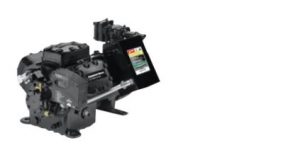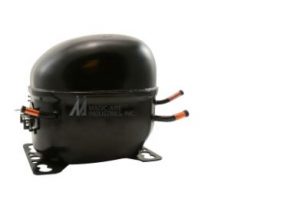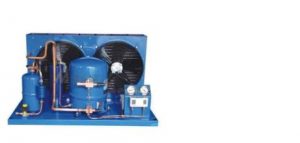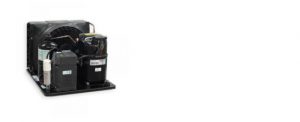Your HVAC compressor plays an important role in successfully cooling your place down. It moves the refrigerant to and fro the evaporator and condenser coils, converting the refrigerant to gas or liquid form as needed. Think of the compressor as the heart of your cooling system and the refrigerant as the blood that it pumps in and out. When your compressor overheats or breaks down, the whole system is affected.
Come the hot summer season, your compressor has to work extra hard to keep providing your space with cool air. Higher temperatures and humidity are its worst enemies. Here are some of their detrimental effects on your compressor:
- Lower Flow Rates: As the air lowers in density during the summer, less air travels through the intake.
- Higher Cooling Water Temperature: The heat prompts the temperature of your cooling water to rise, requiring your compressor to work harder.
- Increase in Water Output: Warm air holds more water vapor. Without proper filtration and a reliable air dryer downstream, your drains would have to work extra hard too.
- Reduced Throttle Regulation: Higher temperatures reduce the ability of your throttle valve to properly regulate your compressor’s operating range.
To avoid sweating through the summer and shelling out money for an expensive repair, it’s important to follow these basic do’s and don’ts at the change of seasons:
Do’s
- Provide Proper Ventilation: The number one goal is to keep the compressor in your outdoor unit cool when the temperatures continue to rise. This keeps the operating temperature low, thus helping with compressor efficiency. To provide proper ventilation, your inlet vent should be big enough to provide cool air to the compressor. It should also be placed in a strategic location to prevent the system from sucking in warm air from your exhaust ducts.
- Clean Your Filters: Air becomes drier and dustier during the summer, making it highly likely for your outdoor unit to gather up dirt and dust. This buildup of dirt clogs up your system, prompting your compressor to work harder, and building up heat on the electrical components. To prevent overheating, ensure that your cabinet fan works properly and your filters are clean.
- Clean Your Coolers: By the same token, dirty coolers can affect the performance of your compressor and lead to overheating. Keep your coolers regularly maintained to help the dryers work more efficiently.
- Monitor the Quality of Your Oil: Heat drastically reduces the lifespan of your system’s oil. In the summer, it is very important to monitor the quality of your oil to ensure that it is free from acids, moisture, and debris. When necessary, change your oil.
- Replace Belts and Couplings: Your belts and couplings are more likely to wear out in higher temperatures. If they start to crack or show other signs of damage, you should replace them immediately.
- Schedule Regular Coolant Maintenance: To keep your compression system running, it is vital to maintain the right pressure, flow, quality, and temperature of the water used in your cooler. This prevents higher operating temperatures, which can lead to overheating. Make sure that the water temperature is cool enough for summer.
Don’ts
- Don’t let plants near your outdoor unit overgrow: It is important to maintain at least two feet of space around your outdoor unit. As plants grow quicker during the summer, they may pose the risk of blocking your exterior unit, thus restricting proper airflow for your compressor. It is necessary to trim your landscape accordingly to give your unit breathing space.
- Don’t let your compressor overheat because of debris: As the air becomes drier and dustier, debris may easily accumulate on your outdoor unit. Combine this with grass clippings, stray leaves, and other pollutants, your exterior unit will most likely suffer from poor airflow. With your AC coils clogged, your compressor has to work harder in order to facilitate heat exchange, putting it under excessive stress. You must clear away debris to prevent your compressor from overheating.
- Don’t let your outdoor unit sit under direct sunlight: If your outdoor unit is sitting directly under the sun, you are not giving your compressor the opportunity to cool down before restarting the cooling process. Help your system remain cool by providing shade. Plant some shrubs near your exterior unit for protection against direct sunlight.
- Don’t forget to check for leaking refrigerant: Checking for leaking refrigerant is a general rule of thumb. As time passes by, the refrigerant line naturally develops cracks, which may lead to leakage. When this happens, the refrigerant level dips and prompts the compressor to work harder. To prevent wearing down your compressor, you must regularly check for leaks.
Other Common Causes of Compressor Failure
Aside from those mentioned above, here are other common causes of HVAC compressor failure:
- Insufficient Lubrication: With low levels of oil for lubrication, your compressor will have to work harder. This prompts compressor parts to rub against each other, posing the risk of smaller parts coming apart and scattering through the system. Insufficient lubrication may therefore reduce the lifespan not just of your compressor, but of your system as well.
- Damaged Suction Lines: The suction lines of your system will naturally develop cracks and holes through time. These damages will restrain refrigerant flow in your system. When this happens, your compressor will have to use extra power to pump enough refrigerant through the unit, which may lead to your compressor overheating.
- Dirt and Debris in Your Outdoor Unit: As previously mentioned, when dirt, dust, and other outdoor pollutants form an insulated layer in your outdoor unit, this results in poor airflow. In this setup, your compressor has to exert more power in order to facilitate heat exchange, putting it under excessive stress.
Compressors We Carry

Scroll Compressor – ZPD83KCE-TF7-496
This scroll compressor has been designed to boost HVAC system efficiency through capacity modulation. It also lets you save energy by precisely matching compressor output to your heating or cooling needs. This commercial compressor is ideal for use in buildings or rooms experiencing varying loads or requiring tight temperature and humidity control.

Stream Compressor – 4MI1-30X-AWM/D-D
This Stream compressor guarantees best-in-class performance, which helps in lowering the cost of operation and environmental impact. It boasts advanced protection and diagnostics features for system reliability, lower service costs, and increased equipment uptime.

Fractional Compressor – PL35G
This fractional compressor is a hermetically sealed reciprocating compressor that can be used for high back pressure (HBP), mid back pressure (MBP), and low back pressure (LBP) applications. It is compatible with the R-134a refrigerant. This compressor model is highly efficient—being able to compress the same amount of gas as a rotary compressor but with significantly less energy input.

Condensing Unit w/ Compressor – LCZ044E20G–
This condensing unit with compressor is ideal for use in light commercial applications like small cold rooms, display counters, and catering appliances. Boasting a sharp design, sturdy construction, and high functionality, it is a top choice among professionals. This unit is compatible with refrigerant R404a, has a voltage capacity of 220V, and a phase voltage of 3PH.

Tecumseh
Condensing Unit w/ Compressor – TAG2522Z-APA2522Z
This model is part of Tecumseh’s line of water-cooled condensing units. It is the
perfect alternative for air-cooled units with excessively high ambient temperatures
and excessive fan noise. It includes a performance-proven reciprocating compressor,
as well as high-quality brazed plate condensers. This condensing unit is known for its
high efficiency and low operating pressures.
—————————————————————————————————-
To check out the other HVAC compressors we offer, you can visit the Magic-Aire website. For inquiries and updates on our other products, you can follow us on Facebook.
